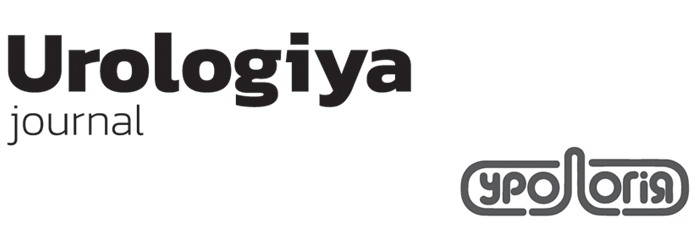Chystiakov R.S., Kostyev F.I., Lysenko V.V., Bondar O.V., Varbanets V.O., Nareiko E.M.
Effectiveness of hyperthermic intravesical chemotherapy in the combined treatment of patients with high-risk non-muscle-invasive bladder cancer
doi: https://doi.org/10.26641/2307-5279.28.1-4.2024.322074
The aim of the study was to increase the effectiveness of treatment of patients with high-risk non-muscle-invasive bladder cancer (HR NMIBC) by using hyperthermic intravesical chemotherapy in the adjuvant mode after transurethral resection of the bladder (HIVEC-therapy group; n=53) and to compare the treatment results with patients in which adjuvant therapy was carried out with BCG vaccine (BCG therapy group; n=54). The frequency of recurrence and progression during the 36-month follow-up period differed significantly between the two groups - 22.6 and 42.6% and 7.5 and 20.4%, respectively. The difference between RFS indicators was significantly higher in the HIVEC-therapy group in periods of 12 months. (HR 0.32; p=0.02) and 36 months. (HR 0.48; p=0.04) after the end of the course of induction therapy. The median time to recurrence in patients receiving HIVEC therapy was longer than in patients receiving BCG therapy: 31.5 months. and 26.0 months. respectively (Log Rank test; p=0.034). The expression level of the proliferative activity marker Ki-67 decreased by 6.5 times in recurrent tumors under the influence of HIVEC therapy and by 2.1 times under the influence of BCG therapy (p<0.001). According to the EORTC QLQ-30 and FACT-BL questionnaires, the best level of quality of life in patients with HR NMIBC was when adjuvant chemohyperthermia was performed. When evaluating the level of toxicity of treatment according to the CTCAE scale of adverse events, a significantly higher number of cases of fever, bladder spasms, and non-infectious cystitis were found in the BCG therapy group when comparing the frequency of grade I-II adverse events. The number of grade III-IV adverse events, such as fever and urinary tract infection, was also higher in the BCG group. The implemented method of treatment of patients with high-risk non-muscle-invasive bladder cancer using the method of hyperthermic intravesical chemotherapy demonstrates treatment results comparable to the results of intravesical immunotherapy, while providing patients with a better quality of life during treatment.

